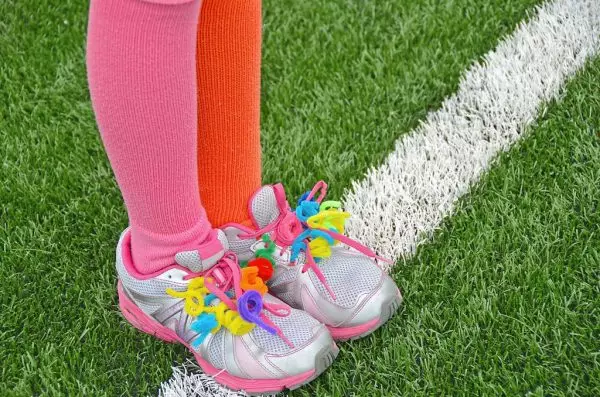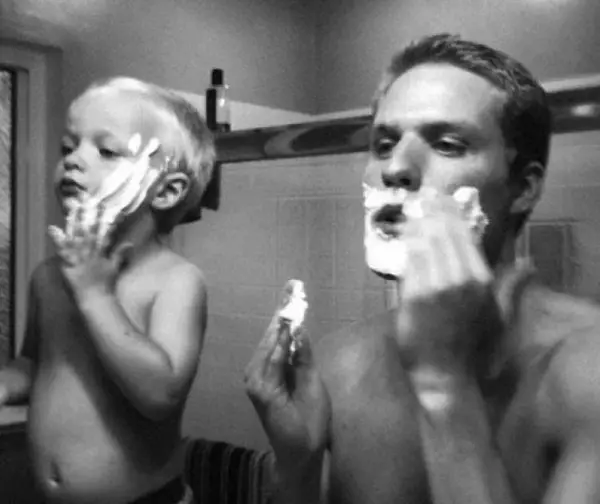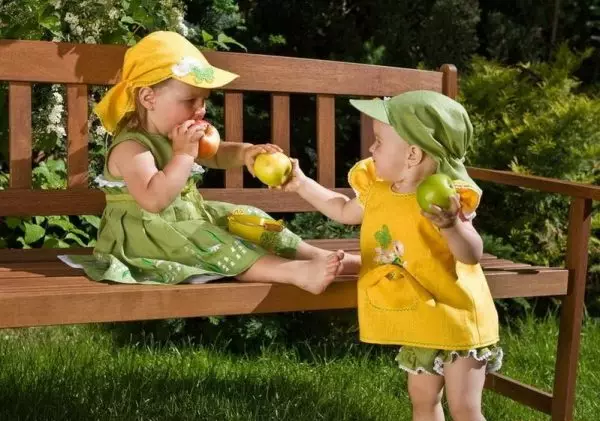Parents from an early age teach children to respect others, carefully
To people, take into account their interests, listen to someone else's opinion. But so that the child rose happy and knew how to build interpersonal relationships, you also need to teach children to defend our own
.

Personal boundaries share their own and someone else's. Personal borders are what a person can call his own. Own room, personal mobile phone, your opinion, feelings and experiences are personal borders, and every person has the right to defend them. Parents should also explain the baby that the personal boundaries are not only from him, but also in all those around them. Alien view, words, emotions, space also need to respect and appreciate.
For the first time with his own borders, the child meets in the family, so parents from an early age should show a crumb that personal boundaries (their own and others) are worthy of respect. Adults do not need to forget that children learn from their example. If the mother talks about how it is important to respect other borders, but at the same time no permission looks at social networks or mobile phone Pope / older child, the baby may have a dissonance. That is, a reputable person teaches one, and on the example shows what can be done differently.
With age, children need to give more freedom so that they themselves learn to manage their emotions. In fact, it is not as difficult as it may seem at first glance.

From the early years of the kids absorb everything that they see, like a sponge. As parents are always near, children tend to take an example from them. "Mom and dad is an unshakable authority, they do everything and speak correctly, and I will do the same thing." If your mother has their own business in priority, even when a near person really needs help, and the dad regularly swears and Hamit others, probably children will behave in a similar way. The behavior of the child will depend on how parents behave in society.
If mom or dad has problems with violation of personal boundaries (strangers or own), first of all, they must deal with this. Otherwise, children will almost certainly begin to "mirror" their behavior. When parents show an adequate example, how to respect the personal boundaries, the behavior of children will immediately change.

Daily parents face disobedience of children: they refuse to remove toys, do not want to go to kindergarten, do not want to dress or eat themselves. Of course, it is difficult to stay calm when the teaching of the child scatters dirty shoes on the rented apartment or throws food. But wise parents are trying with all his might not break, go to a cry or slap naughty karapus.
Try at any hysterics to keep calm, no matter how hard it was. And soon Kroch will understand that negative emotions can be expressed not only with the help of screams and hysterics, but also to explain in words. Again, remember that on the personal example we teach children, as you need to behave with other people.
Parents must support the child, especially when he is experiencing negative emotions. In no case cannot demonstrate to children that malice, fear, chagrin is a bad, shameful state. If you see that the child is experiencing negative emotion, be near, calm, talk about what the baby feels. Krook need to hear from mom and dads such words: "I am near, I understand how hard you are now. I love you, despite the fact that you are very angry. We now calm down a little and will definitely find a way out of the situation, well? ".

When the kid who dwells in a negative condition, calm down after your conversation, explain to him how people in society interact with each other. Your story should be mischievous, fascinating, so that Kroch is interested and learned something. You can use cartoons, books with bright pictures or attract toys that "show" many different life situations and outputs from them.
The baby must understand that he is the owner of his things and has the right to dispose of them at its discretion. But it is possible to defend your toys not only with the help of fists or tears. With any person, regardless of age, you need to be able to negotiate.

What are personal boundaries:
- Subject. Children should have personal belongings. In no case do not say that there is nothing in your child, because all toys, clothes, books buy him parents. If you are handing a baby doll, tell me: "This is your toy. You are her owner. " The girl from now on has the right to dispose of his doll as he wants. If the daughter wants to give a new doll to the girlfriend, do not hinder it. Just do not buy immediately new pups. The daughter must learn to respond for their actions. No need to force your baby to share your toys. "What are you greedy, let me play your typewriter," - parents should not say that, because the machine belongs to the child, and he himself decides how to do with it. "Maybe change with the boy toys?" - You can offer this option that will arrange both sides. So that the child taught to respect other borders, parents must appreciate the borders of their baby. You should not take the baby without permission, to dispose of them at your discretion, go without a knock in his room.
- Bodily. If the crumb does not want to wear a sweater, because he ourselves, do not force. If the child does not want you to hug him, kissed, do not need to do this. You need to learn to respect the word "no" that your child says.
As adults can break the physical boundaries of kids:
- caress
- forcibly feeding
- to make what is not interesting to the child;
- Apply physical punishment.
Each person has its own comfort zone. Adults need to be considered and not to disturb the personal space of the child if he does not want it.

A three-year-old kid can already choose, in what clothes he will go to the garden, where he wants to go for a walk, what dish wants for lunch. Let's crumble the opportunity to make your own choice. "Who do you want to take with you in the crib: a bear, a doll, bunny?". Do not criticize the decision of the child to do so how he wants, otherwise in the future, the son or daughter will not learn to defend his opinion.
Also, each child has the right to personal experiences and feelings. Parents must respect and take feelings of babies, and not shifting responsibility for their negative emotions on small shoulders.
